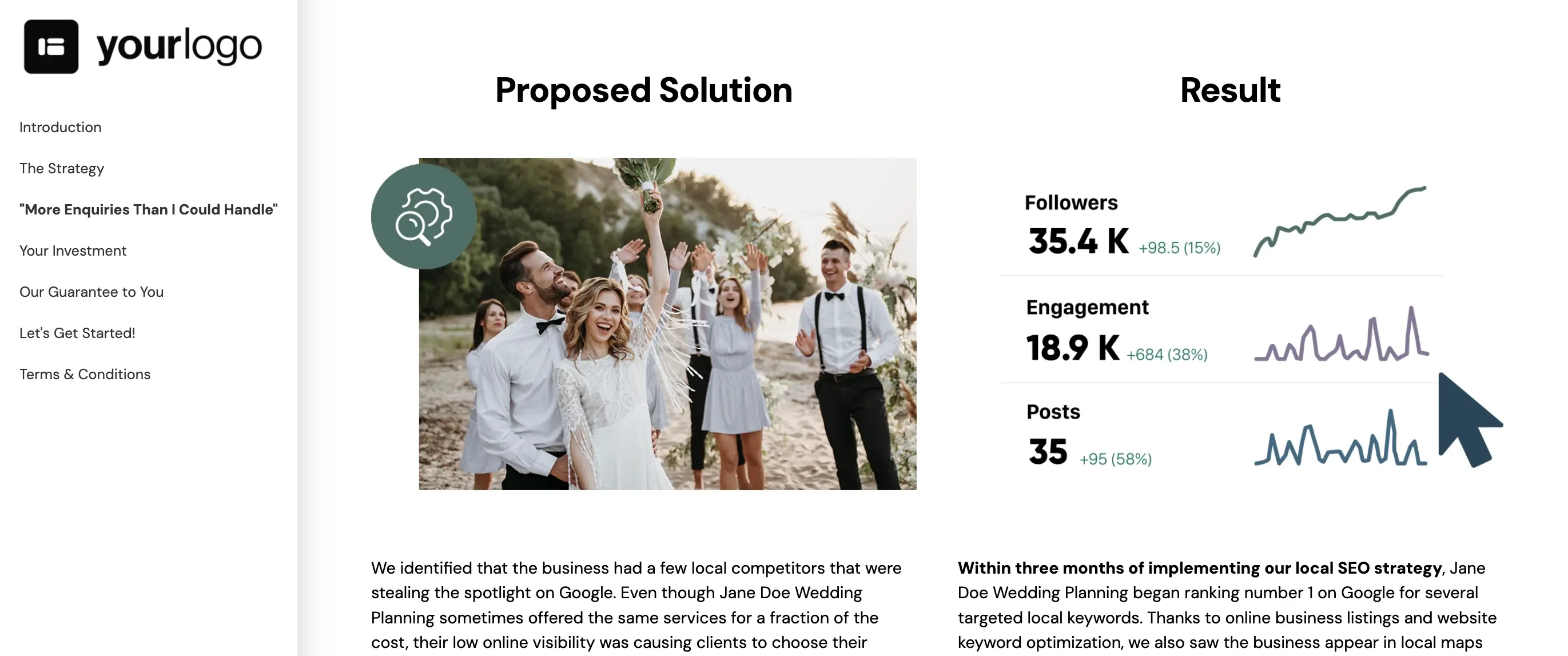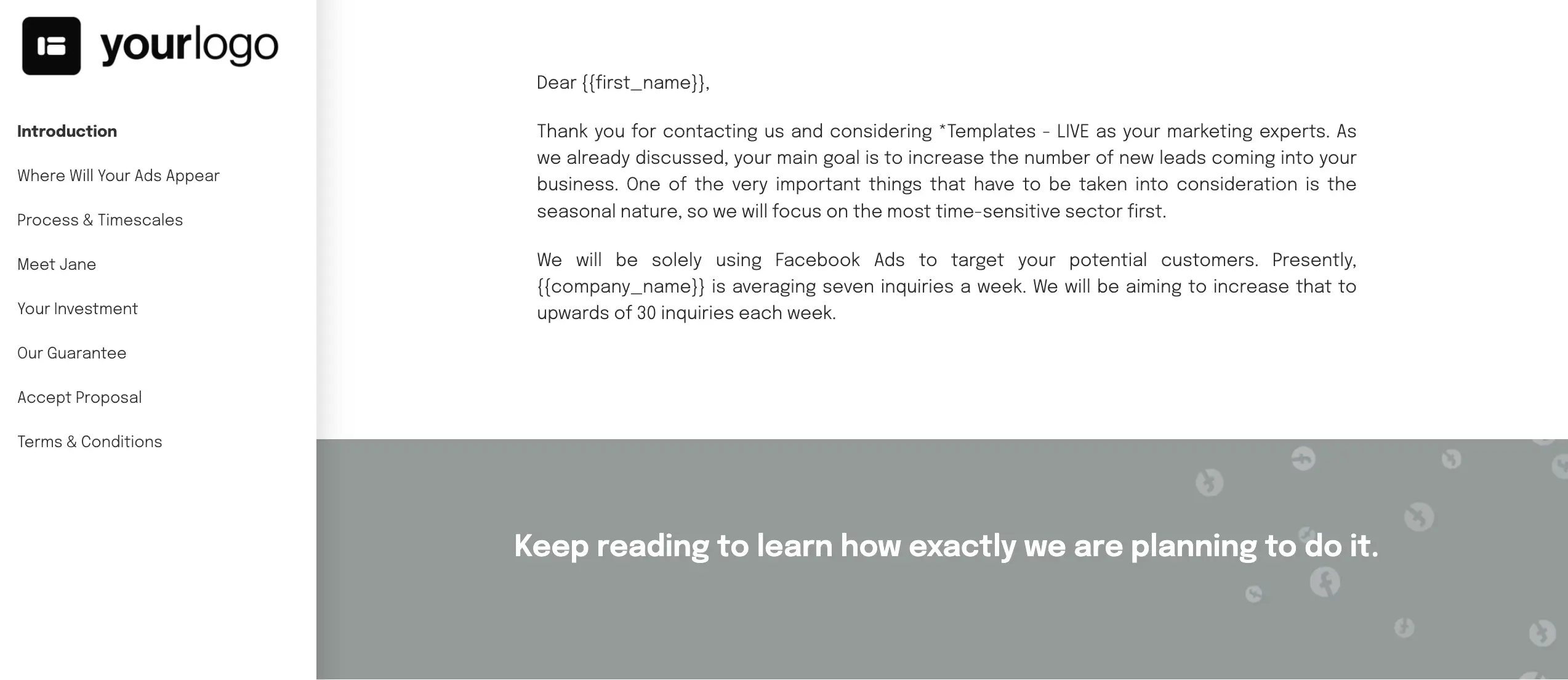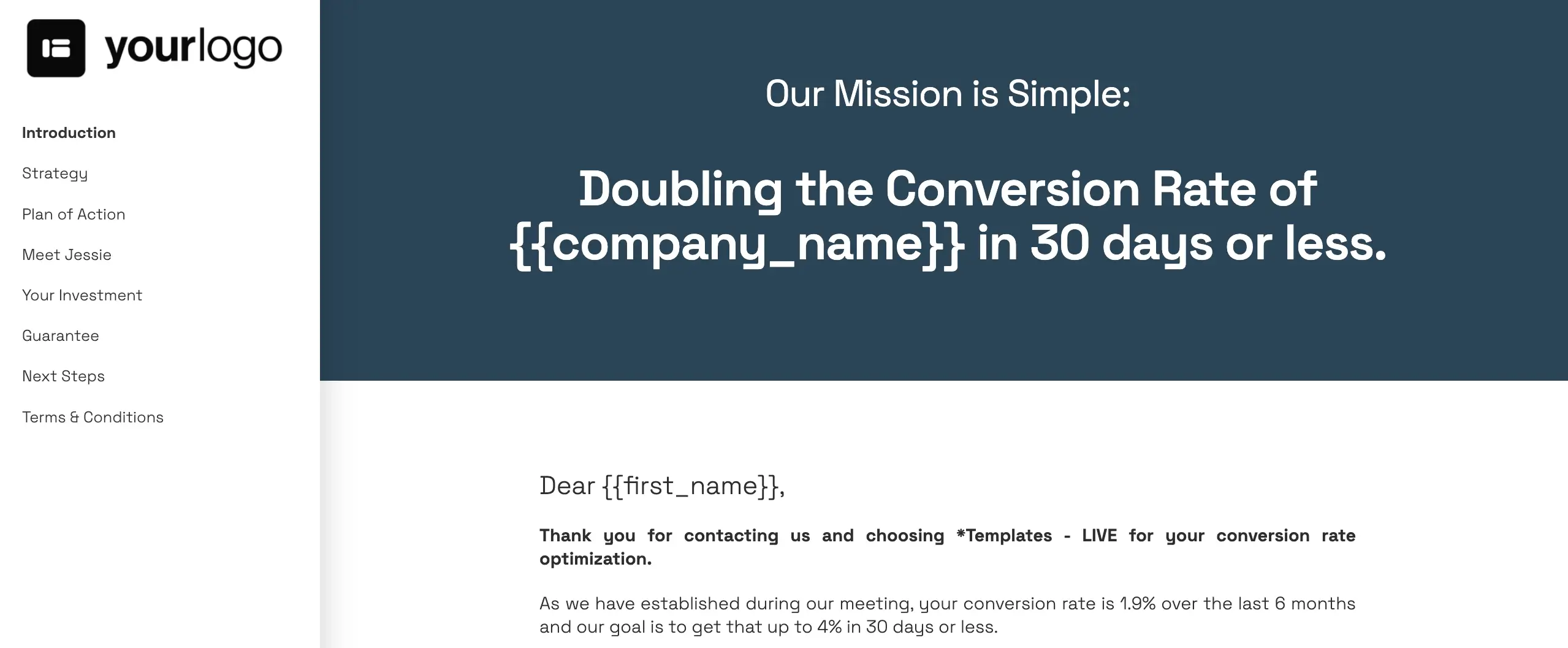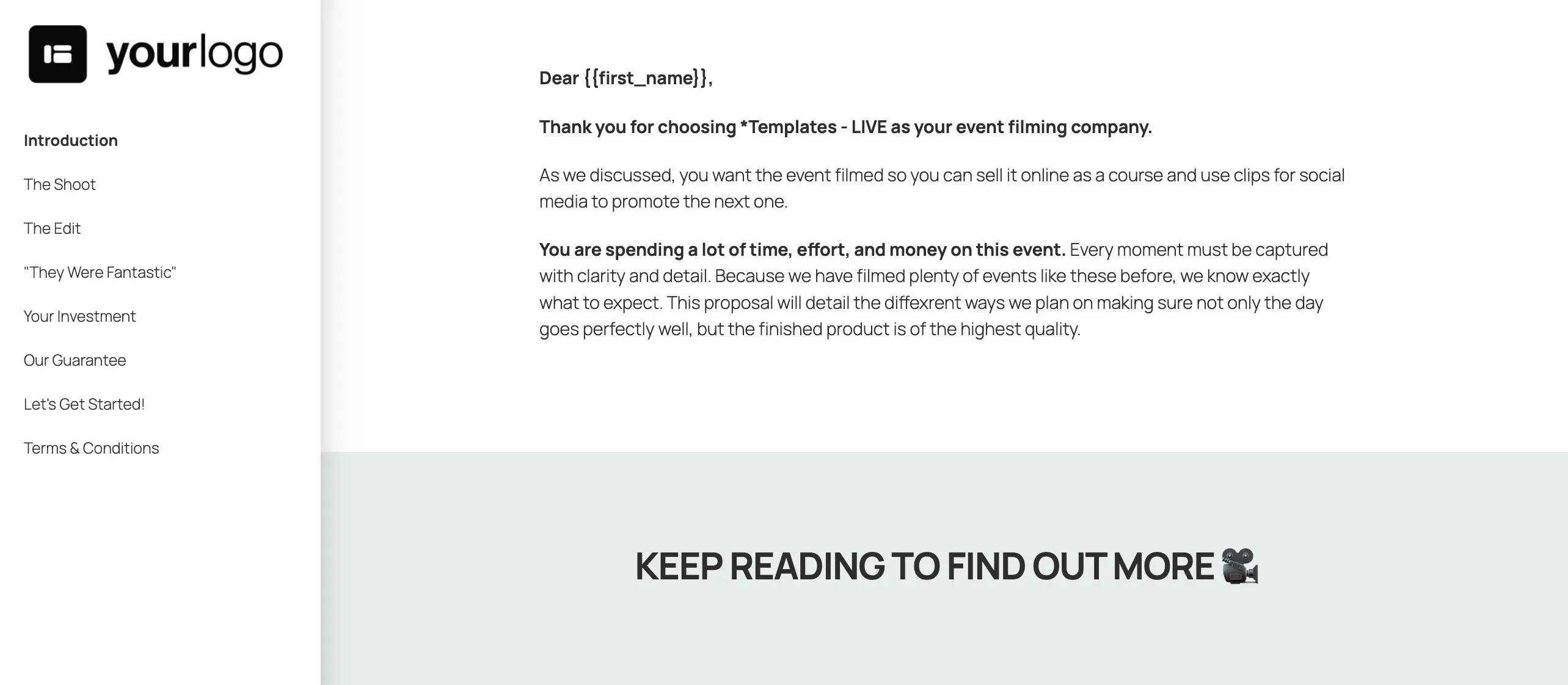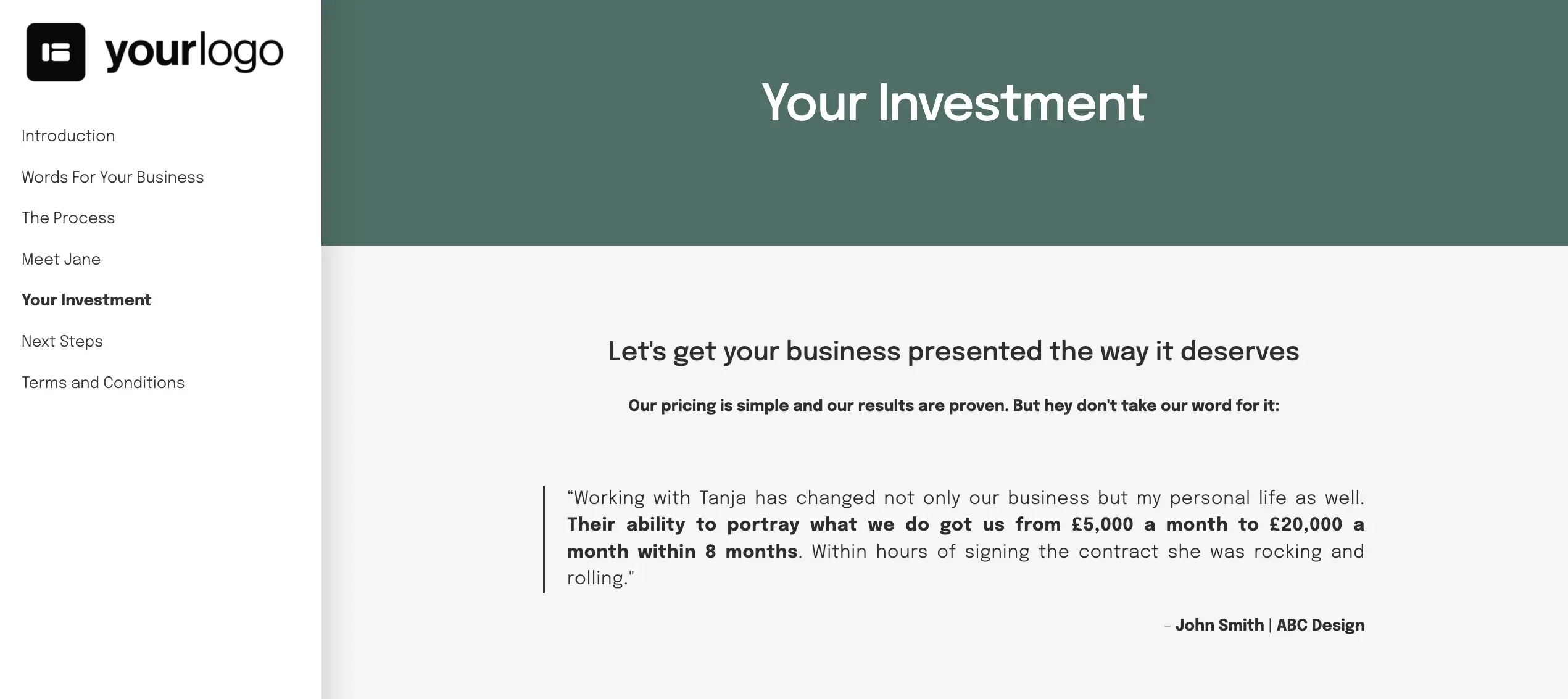Expert Tips: How Your Proposals Need to Look in 2026

Here's an uncomfortable truth no one wants to say out loud: your proposals aren't being read. Not really.
Your clients swipe, skim, and scroll. They're not interested in your company's full backstory or admiring your mission statement. They're scanning for something that should make them care.
And if they don't find it in the first few seconds? They're gone.
In 2026, you're not just competing with other proposals. You're going against inboxes, Slack pings, and dozens of other distractions that are far less demanding than reading your pitch.
That's why your proposal needs to work harder than ever. It needs to look better, say less, and deliver more upfront.
What we'll cover
Tip 1: Look sharp or don't bother
94% of first impressions are design-related. Cluttered layouts and walls of text scream "this will be a pain" before your client reads a single word. So, they just don't.
When your proposal doesn't look like it's worth their time, it doesn't get their time. Here's how to make sure it does.
Keep it clean. Use white space like it costs money. Break content into short, scannable chunks.
Structure for speed. Think clear headings and a logical flow. Your client shouldn't have to send a search party to find the pricing.
Use visuals with purpose. Any icon or graphic you use should clarify your message. Looks matter, but they should serve the content, not distract from it.
Design for screens. Build your proposal for the way people read now, not the way they printed things out 20 years ago. Make sure your proposal holds up wherever they open it.
Tip 2: Get to the point
Most proposals don’t say anything useful until page six. By then, your client's Googled three competitors and ordered lunch.
Your proposal should answer four questions:
- What's in it for me?
- How much does it cost?
- How fast can we start?
- What’s the next step?
Bury those answers under layers of fluff and you're just giving them a reason to close the tab. Instead:
Offer value upfront. Don't waste your introduction on explaining your company history. Tell them what problem you’re solving and why it matters.
Don't be vague. “We help businesses grow” means nothing. “We’ll help you book 30% more demos in 90 days” gets attention.
Make sure your pricing is clear. Don’t make them pull out a calculator to figure out what they'll be paying.
Tip 3: Personalize more
Did you know that as much as 90% of clients want more personalization than they're already getting? Slapping a name on the first page and calling it a day doesn't cut it anymore.
Real personalization means showing you understand their business, their goals, and their challenges. That you understand them.
In your proposal, reference real conversations you've had with them. If you're an online tutor, acknowledge their learning style. If you're a videographer, sprinkle in event details they shared. Mention specifics like their pain points and timelines to show them they’re not just Prospect #47 in your pipeline.
Tip 4: Create an experience
Here’s a crazy idea: instead of sending a PDF, what if your proposal actually engaged people? What if it pulled people in, kept them going, and made saying yes feel like the obvious next step?
To make that happen, start by adding in some dynamic elements. Embed a video of your product in action. Use interactive pricing tables where the client gets to choose the quantity or add extras.
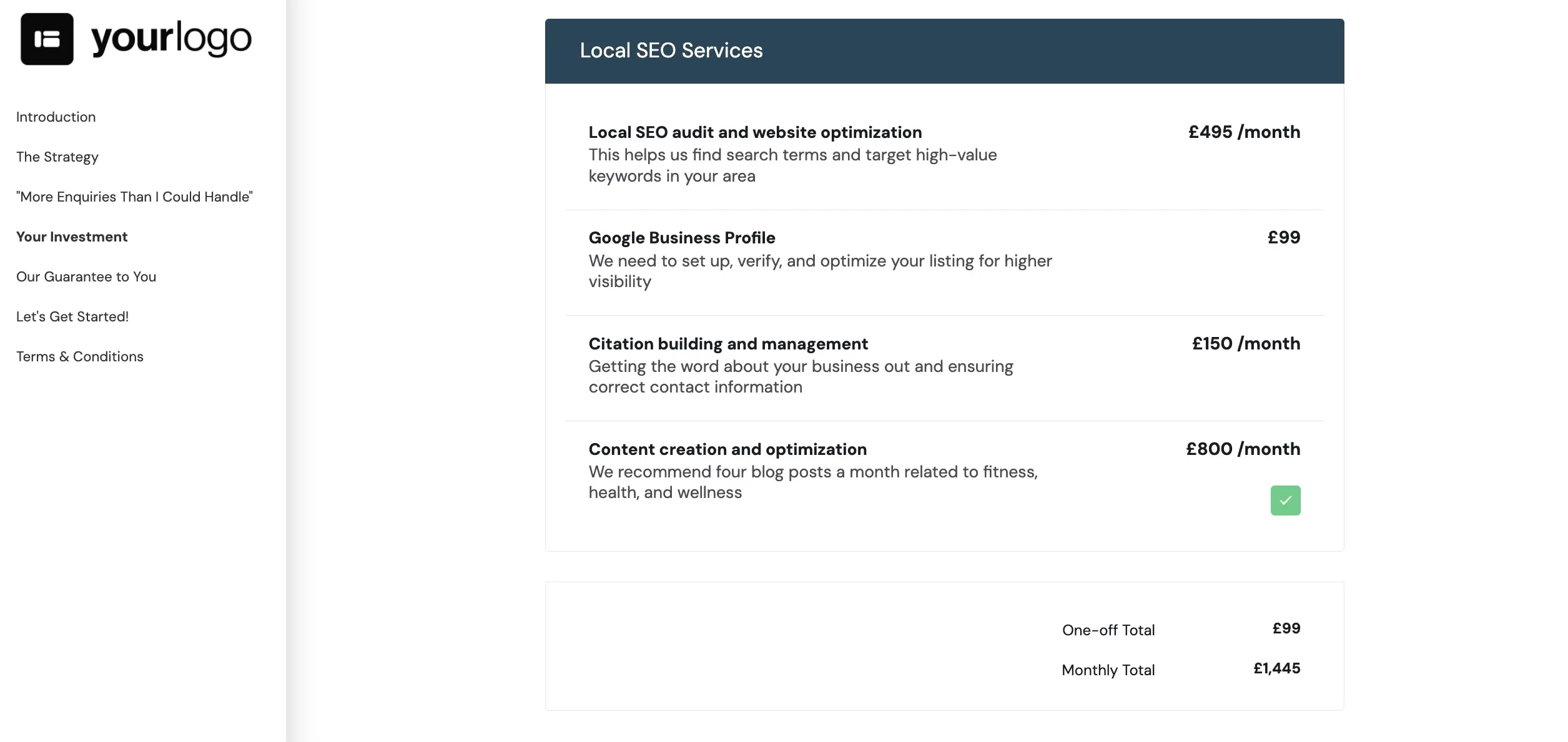
Don't just show information. Let them explore it through clickable sections at their own pace.
Speaking of sections, you already know social proof goes a long way in sales. So why hide it at the end? Use it where objections pop up - next to the pricing, along with the deliverables.
Tip 5: Make it easy to say yes
We've seen this too many times to count. Instead of guiding the client across the finish line, the proposal just stops. Or worse, it ends with something vague like “Let us know what you think”.
No. Don’t make them think. Don’t make them work for it. And whatever you do, don’t make them guess what to do next.
People don't buy when they're unsure. They buy when it's easy and when it feels like an obvious choice. Making them feel that way is your job.
Be crystal clear about the next step. Book a call. Sign here. Click accept. Choose a package.

Use built-in approvals and digital signatures. If they have to print something to sign it, then scan it and send it back, you’ve just given them three good reasons not to do business with you.

Proposals aren’t admin
And they shouldn't feel like a chore to go through. If your proposals still look like something that could be faxed to a boardroom in 1998, they're definitely getting closed. Just not the way you hoped for.
Modern proposals should look great, read fast, and make it ridiculously easy for clients to say yes. That’s exactly what Better Proposals was built for. Try it free today and make your next proposal the best one yet.


